
Feature
Staging a Comeback: Arts Leaders Navigate & Deliver Through Challenging Times
By Sylvia Whitman | September 2021
On the eve of the 2021-2022 season, Sarasota Scene asked directors at seven of Sarasota’s leading arts and culture organizations to reflect on the impact of the pandemic and anticipate what the future might bring—even as the delta variant of the coronavirus has put an asterisk next to anything labeled ”plan.” What efforts have gone into launching the upcoming season? How has the pandemic shaped programming? What challenges wake you at 4 a.m.? What excites you most about the next 12 months—and perhaps the rest of the decade?
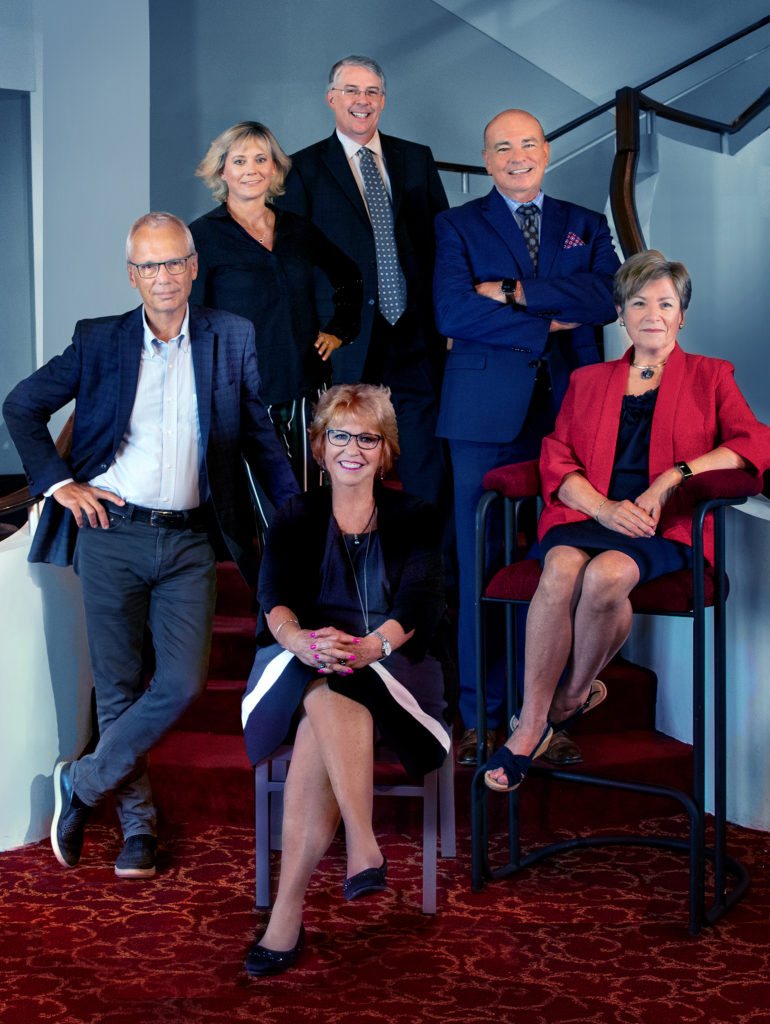
Front Row: Steven High, Mary Bensel, Linda DiGabriele
Photo by Jordan Kelly-Laviolette
For that last question, Joseph McKenna, president and CEO of Sarasota Orchestra, has a short answer: “Change and change.”
Themes emerged. “The word of the year was pivot,” according to Producing Artistic Director Michael Donald Edwards and Managing Director Linda DiGabriele at Asolo Repertory Theatre. Or, as Richard Russell, general director of Sarasota Opera, puts it, “In effect, this entire year has been about learning, adjusting, troubleshooting, and being creative.”
New virtual programs, created on the fly, drew in and often expanded audiences. “Thousands of audience members from 47 states, and across 30 countries and six continents, all ballet lovers, experienced the remarkable artistry of The Sarasota Ballet,” says Executive Director Joseph Volpe.
Last spring, individual Sarasota Orchestra members created musical vignettes for posting on YouTube—and the Library of Congress asked to archive these to document the pandemic. The Ringling partnered with Sarasota Memorial Hospital to enable quarantined patients to tour the museum “through the eyes of a remote-controlled robot named Artie,” says Executive Director Steven High. “The robot was driven by the patient and could go anywhere in our Museum of Art. A museum educator accompanied the robot and discussed the works of art and responded to questions.”
Almost every organization mentioned that disruption spurred both innovation and introspection. “We learned from the reckoning the entire country experienced with the murder of George Floyd and dug deep into examining our work at FST,” says Florida Studio Theatre Managing Director Rebecca Hopkins. “The entire staff and board took this time to really focus on our work on equity, diversity, inclusion, and access.” Those four words came up again and again.
“It really truly has been the worst of times and the best of times,” says Mary Bensel, executive director of the Van Wezel Performing Arts Hall. “The community of the performing arts, which always was a group who thought out of the box, now had to think to outer space to get through.” On the plus side, local arts and culture leaders consulted with each other on everything from closing/reopening considerations to the merits of specific cleaning products. Sometimes they just cried on each other’s shoulders. “The bonds I have made this year with my other performing arts cohorts have strengthened a thousandfold,” says Bensel.
In addition to collaboration, these trying times have prompted tremendous public and private generosity. “We saw the community rise up and say, ‘The arts are core to Sarasota,’” says Hopkins of FST. “It was everywhere.”
Asolo Repertory Theatre
“It truly takes a village to produce live theatre, and that’s on a good day,” says Producing Artistic Director Michael Donald Edwards. “This past year was an occasion for us to think differently. It was a new opportunity to revitalize the organization at all levels while also taking action on equity, diversity, and inclusion.”
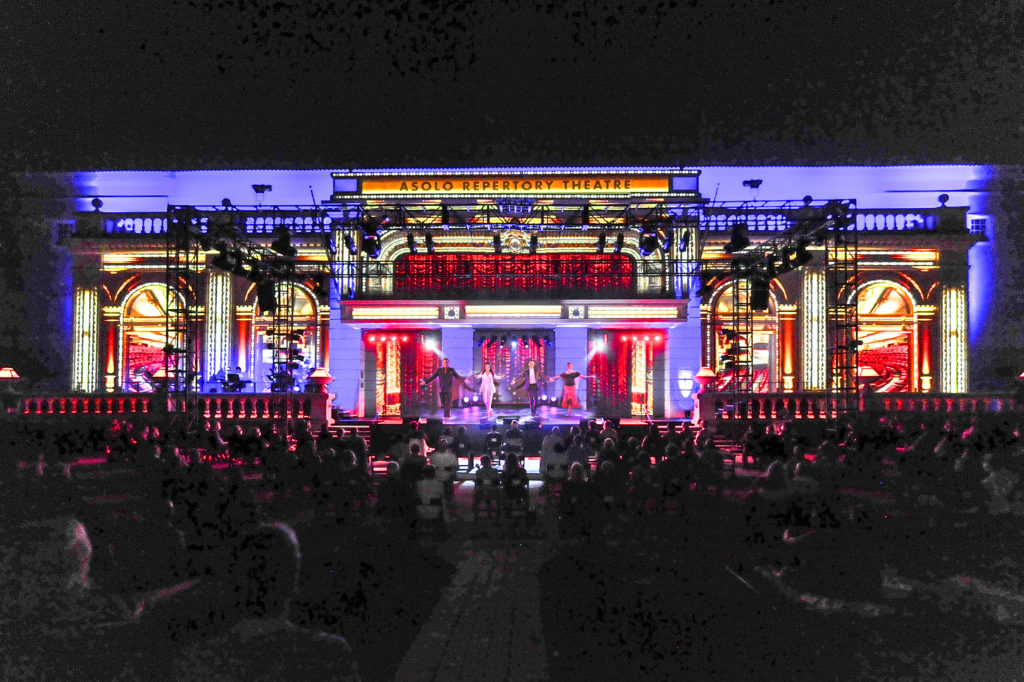
Amid the pandemic, Asolo Rep found “a way to produce live performances outside by building an entire outdoor theatre from the ground up,” notes Managing Director Linda DiGabriele. It was one of the few professional theaters in the United States to pull that off, thanks to careful attention to health and safety protocols. “Producing the outdoor season on the Terrace Stage with a significantly reduced staff required everyone to function at the top of their game and beyond. It was hugely rewarding—and very moving—to be performing live, even in less than ideal circumstances, and vital to stay connected to our community, which has been so supportive.”
Having finished its outdoor Terrace Stage season in April, Asolo Rep used the summer to reevaluate every facet of its operations—“to review our priorities and examine new ways of thinking and producing,” says DiGabriele.
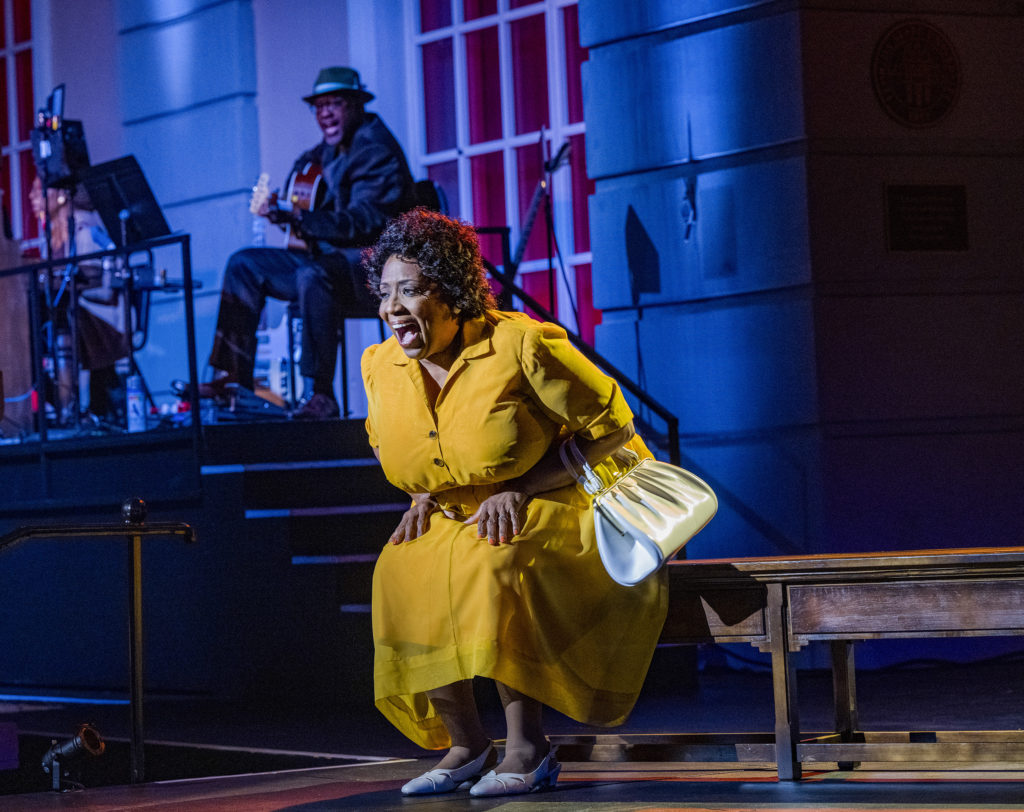
The pandemic has shaped the upcoming season on both logistical and artistic levels. Besides staging shows originally slated for last year, such as The Great Leap and Knoxville, Asolo is leading off the new season with Hair. Its signature “Let the Sunshine In” suggests both the joy of returning to live theater and the accountability the times call for.
“Hair is an exuberant celebration of community and the differences that are reflected in the tapestry of America. It’s a reminder of all the good sides of humanity,” says Edwards. “The pandemic revealed cracks across our society. Experiencing performances like Hair and the other work in our season is sure to leave audiences a little more comforted and a little more positive. We hope to inspire a community to grow even stronger than we were before the pandemic.”
Florida Studio Theatre
The spring 2020 lockdown hit FST hard. “Overnight, we went from 150 people working on our campus to 30,” says Managing Director Rebecca Hopkins. “Our stages went dark for 15 months.”

Those 30 staffers, however, undertook major infrastructure projects—refurbishing five theaters, renovating the Goldstein Cabaret kitchen and support facilities, and installing new accounting and inventory systems. “It wasn’t glamorous work, but it was work that would make us strong when we came back,” says Hopkins—and it included the “Snowbird Project,” reseating the entire subscriber base (about 28,000 tickets) so that patrons can keep the same seats when they’re in town.
Now that the lights have come back on, “the biggest challenge so far has been bringing new staff on board,” says Hopkins. They need support and training in usual routines and new COVID protocols.
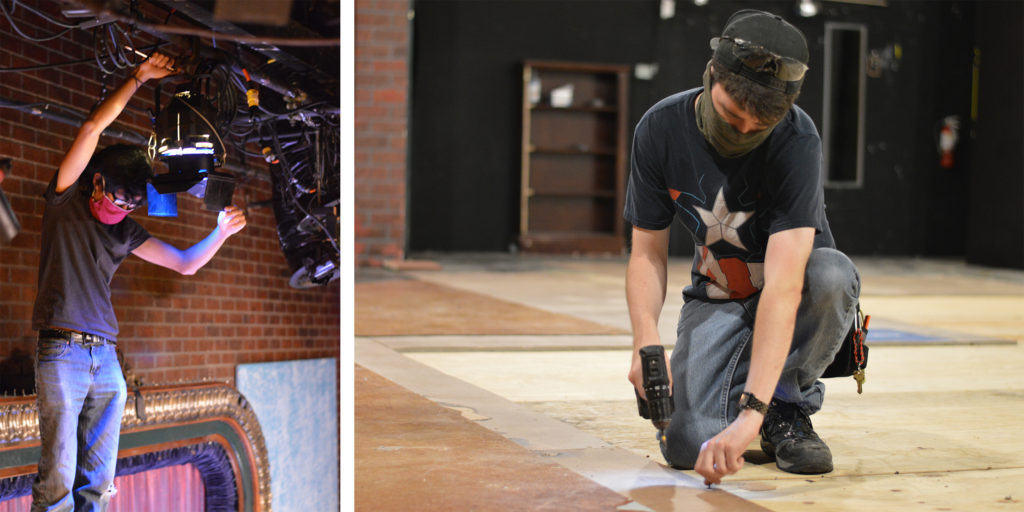
The biggest thrill is the return of the audience, “the final character in any play,” says Hopkins. “Without them, it’s not complete.”
She accepts that things won’t be the same—shouldn’t be the same—and that another shoe might drop. “We have all experienced something great and grave together. We—all of us in this town, all of us in this state, all of us on the planet—have experienced something together. We have a common experience, and that is a rare thing. Seldom in the history of humanity have we had a ‘shared experience’ of this magnitude on a worldwide scale. We have a deeper understanding that we are all in this together. And that your destiny impacts me. Your life impacts my life, no matter how different we may be. We are all connected. So, what will we make of it?”
The Ringling
“Everything changed due to COVID and our 2 ½ month closing [in spring 2020],” says Executive Director Steven High. “Planning, budgets, financing, and earned income all took a significant hit.” The Ringling reopened in May 2020, with most of the staff returning from remote work on August 2.

The museum extended the run of many exhibitions and delayed the start of others. It was tricky to ship artwork during quarantine. Staffing shortages due to attrition over the past 18 months and a hiring freeze by FSU have created other challenges. “We have made a major push toward recruitment of staff in almost all areas of the museum,” says High, “but in particular we are focusing on expanding our part-time employees in security and visitor services.”
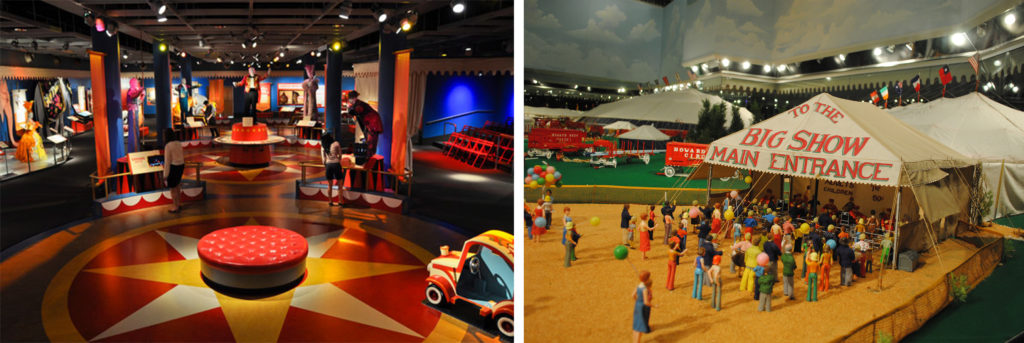
Regardless, the performance program continued. The Ringling developed artist residencies in the Historic Asolo Theater, including a major live-streamed performance by John Sims, and presented films. “By this winter and spring, we will be back to scheduled performances including many artists that we had to cancel due to COVID in 2020,” says High. “The performance group Cimafunk will perform as part of our season launch party in October.”
The Sarasota Ballet
“In many ways, in comparison to the constant shifting playing field that was the previous season, the planning effort for the upcoming 21-22 season has been significantly more straightforward,” says Executive Director Joseph Volpe. “That isn’t to say that it’s been business as usual, and of course with the unpredictable nature of the pandemic, one can’t take the status quo for granted. However, The Sarasota Ballet has learned and grown a great deal over the past 18 months, and I have great confidence in all of us to adapt and thrive no matter what is thrown our way.”

So, for the moment, Volpe is looking forward to “the rush of the theater … that feeling of community, the exhilaration of a standing ovation, the simple joy of watching an artist perform on stage, live and in person.”
Volpe says that he’s sure he speaks for all local nonprofits when he says “how incredibly grateful we are for this truly remarkable community.” In other places, museums and performing companies struggled and closed. Certainly, artistic and administrative leaders and their boards faced tough decisions, but “in the end, the patrons of Sarasota and Manatee County kept the performing arts thriving, building a support system for an ever-flourishing cultural community.”
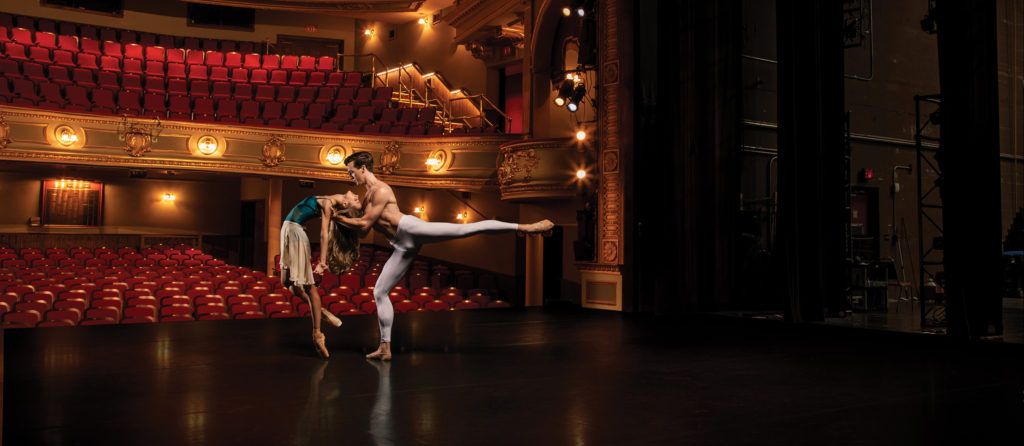
At the same time, Volpe worries about global donor fatigue over the long haul of COVID’s economic impacts—likely to be felt for years and years. “What concerns me is, when the ‘all clear’ is given across the country and indeed across the world, whether the performing arts industry will be in a stable enough position to carry these new burdens.”
Sarasota Opera
“We have learned a great deal about our company and our audiences in the last year and a half,” says General Director Richard Russell. “Our programming will return mostly to normal going forward, but the positive response to our ‘COVID’ season, with shorter, less familiar works, will encourage us to include this kind of programming in future seasons.”
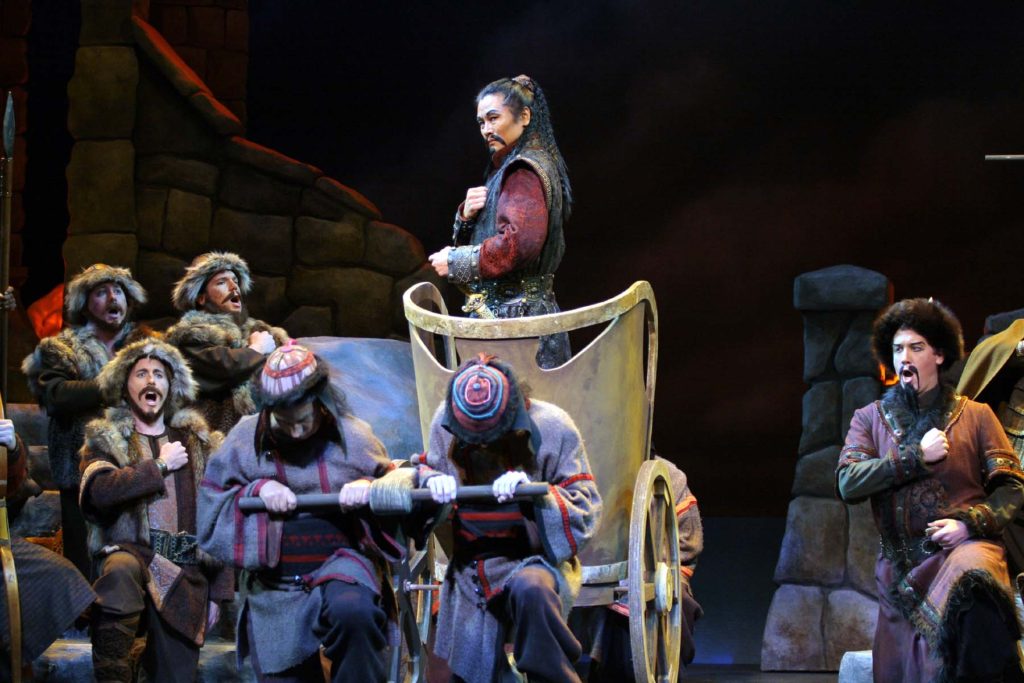
As “the only opera company in the U.S. to present a season in our theater last February and April,” Sarasota Opera mastered strict health and safety protocols, says Russell, and is planning “fully staged opera in the Opera House.” He’s eager, after a year and a half of limited connection, “to jointly experience the joy of live opera.” But what do patrons want—and how will they vote with their feet? “We are hoping that, in the coming year, a larger percentage of our audience will want to be back, but it’s anyone’s guess how many.”
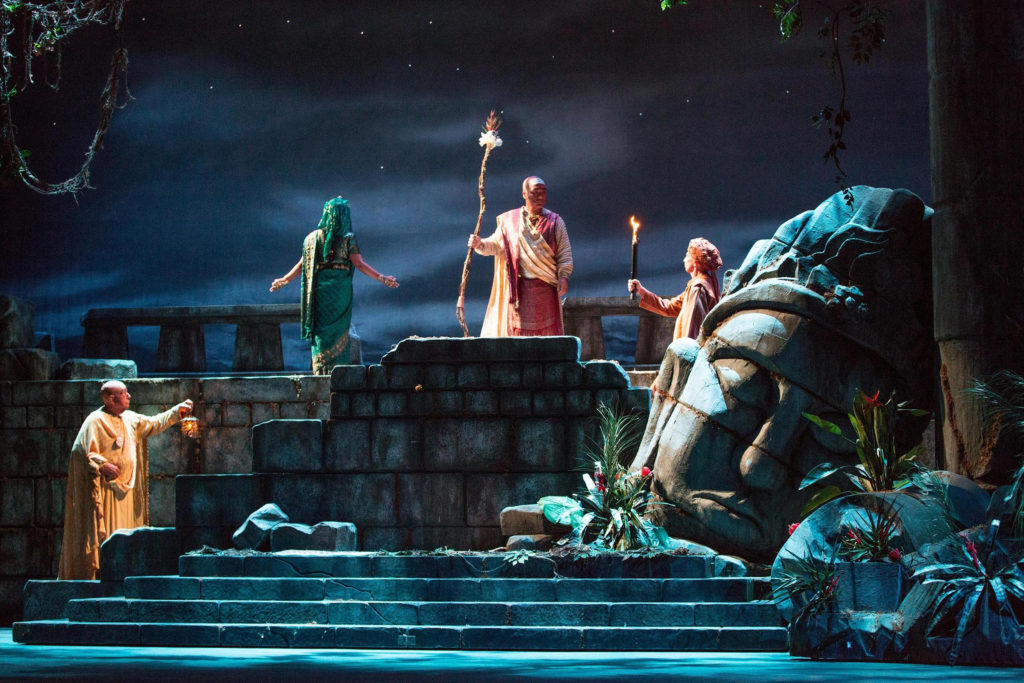
Russell says he got very emotional at the opera’s first rehearsal and after the first post-pandemic performance. “I don’t do this job for thanks, but the comments from our audience following performances—several of whom said, ‘Thank you for performing. I feel like I have my life back!’—emphasized to me that despite some naysayers and skeptics, we had made the right decision to put on performances. And most importantly that we were able to do it safely!”
He adds, “Responding to the pandemic and making the best decisions for everyone has been a moving target. I just hope in the coming year that target slows to a near stop.”
Sarasota Orchestra
“Imagining and planning the coming season is as though we were invited to be the first orchestra to perform at the international space station,” says President and CEO Joseph McKenna. “We are experienced and seasoned in what we do, but we have had to learn how to present in a completely new set of conditions.”
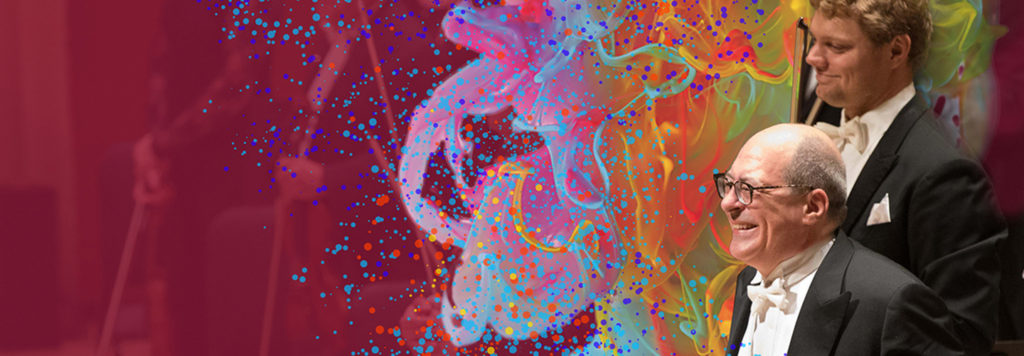
Assembling the 21-22 season, “we worked hard to honor repertoire, conductors, and soloists who were postponed due to the pandemic,” says McKenna. “The hiatus also created a thirst for some of the iconic, full-orchestra works in the repertoire,” so the orchestra has programmed a mix of “treasures” and “other works that create the energy of a spring garden after a long winter.” The Chamber Soirée series unites spoken word with music to signal the power of that combination “after this prolonged period of longing for our spirits to be lifted.”
Striving to be resilient and relevant is nothing new for Sarasota Orchestra, adds McKenna. The absence of live music this past year has underscored its importance. “By its essence, music promotes enhanced listening, shared experiences with others, and a commitment to education and community. These life qualities have all been challenged during the pandemic. Renewing these experiences, combined with our desire to author thoughtful change, will make the next decade a rewarding journey for our organization and community.”
Van Wezel Performing Arts Hall
During the dark-stage days of the pandemic, Executive Director Mary Bensel stood under the ghost light in the hall to “keep the ghosts of seasons past company. More than not, I would find myself in tears, but by the time I left I felt reassured that new memories would be made on that stage again.”
She recalls one “very poignant” week of pandemic workarounds. “We had been doing a large number of online shows with our artists, and we decided to do local interviews to put in our newsletter.” All the performers were “absolutely devastated they were not to be on the road or able to help.” Theater people, she says, “rush in to help whatever the crisis is. They try to cheer everyone up or raise money or get people to help out. But with Covid, we were all sidelined.” Video performances just “didn’t have that one-on-one experience of the artist and the audience. That ripped hearts out of all of us.”

The Van Wezel team stepped up its educational outreach online—and whatever else it could. “Parking-lot graduations, a black-tie dinner, a vaccination clinic, bayfront yoga, food distribution—you name it, we loved it.”
Now the Van Wezel is emerging into a brave new world. “Putting together every season is like working a jigsaw puzzle with multiple moving dates. Often, a change that happens to a show in Ohio, for example, can totally impact calendars all across the country,” says Bensel. “But this year, juggling three years into one has been like a jigsaw puzzle in 3-D.”
Early on, COVID nixed Hamilton, and “other shows that had been on sale and scheduled will now have to come before new plans.” As much as any plan can be nailed down. Bensel has no shortage of uncertainties. “I worry if the audiences that made us the number one performing arts center in the world in our category will all return. So much of what we do comes down to having every seat filled. I worry that shows that have confirmed may cancel.” Some artists aren’t ready to tour yet; others are choosing venues based on the country’s political divide. Actors’ Equity, the union for live performers, is making demands that are harder to meet for an older building.
Still, Bensel says she’s “over-the-moon excited about seeing all of our loyal audiences again—our ushers, sponsors, stagehands, wardrobe personnel, touring personnel, musicians, actors, caterers, and vendors. It will be like Christmas morning wrapped up in the Fourth of July for the first few months of shows!”

The Shows Will Go On, One Way or Another
Richard Hopkins, FST’s producing artistic director, likens this past year and a half to a dip into the Middle Ages, a dark period marked by instability, plagues, and strife. But “we need to remember that the Middle Ages were followed by a new awakening—the Renaissance. We think and hope we will see the beginning of an American renaissance in the arts.”



You must be logged in to post a comment Login